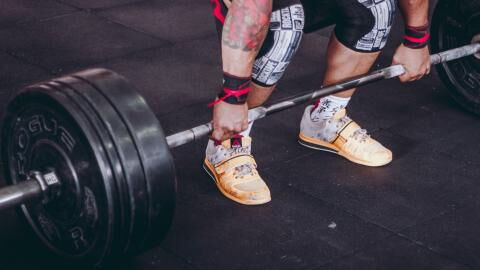It's easy to start working out in the hopes to get buff, without building a holistic fitness regime. With that in mind, perhaps its time we think a little bit more about our nutrition facts, and what we should consider when trying to sculpt our bodies into what we want them to become.
Discover our latest podcast
Protein: An essential trick of the trade
Protein itself is an essential macronutrient that promotes muscle growth, tissue repair and influences the body's production of certain hormones and enzymes. Part of the makeup of certain proteins are amino acids. They are part of what makes-up proteins and aid in muscle hypertrophy (thegrowth and development of your muscles).
How much protein should I be eating?
A general rule of thumb that a lot of bodybuilders go buy is that you want to be consuming at least 1 gram of protein for every pound you have of body weight. If you weigh 175lbs you should aim to be consuming about 175 grams of protein per day.
Now when we look at the protein content in natural foods like meat, eggs, fish, seeds, dairy and certain veggies like spinach you may be frightened to find that the sheer amount of food you'd need to prep and consume is frightening and would no doubt be expensive.
Because trying to eat your optimal amount of protein just from consuming food is a little impractical and can sometimes cause you to take in more calories than you should (causing you to gain weight) a lot of bodybuilders and athletes turn to supplements instead.
What type of protein is best?
Protein supplements are widely used in bodybuilding and athletics. Protein has also been proven to help you feel more full, so if you're hoping to tone muscle and loose fat at the same time, using protein supplements can also help you get leaner.
When it comes to protein supplements there are quite a few options out there, the one that a person may choose may depend on their dietary restrictions/preferences or training habits. The most popular protein supplements for non-vegan and vegan athletes are:
Whey protein: A dairy-based protein, it contains all essential amino acids and can be absorbed by the body relatively quickly.
Soy protein: A plant-based protein that also contains all the essential amino acids and has also been shown to help lower cholesterol among other health benefits.
Other protein supplements are casein protein which is a dairy-based protein that is more slowly absorbed, and more plant-based proteins such as pea, hemp and rice protein supplements.
When is the best time to be consuming protein?
When it comes to optimizing muscle growth, there has been a lot of debate on the subject of when to take protein with most sports nutritionists and personal training recommending the majority of your protein intake between 15 and 60 minutes of the period post-workout. This is said to be the optimal 'anabolic window' which is the idea that consuming protein during this time will allow your body to get the most out of this much-needed macronutrient.
Recent studies conducted by the International Society of Sports Nutrition have shown that this 'window' is, in fact, open for up to two hours post-workout. So it looks like a big protein-filled dinner is not such a bad idea after coming home from the gym.
While these 'optimal' times are said to help you get the most out of the nutrients you take in, it is important to remember that nothing will really matter unless you're getting the amount of protein you need. The general rule of thumb is 1 gram of protein per pound of body weight. So if you miss the anabolic window it doesn't mean you should give up on your protein intake. Make sure you're getting enough of all the nutrients you need throughout the day first. Second, make sure you get in a solid and efficient workout and worry about timing last, at least until you're ready to take things to the next level.















